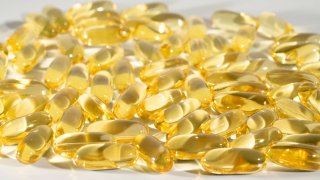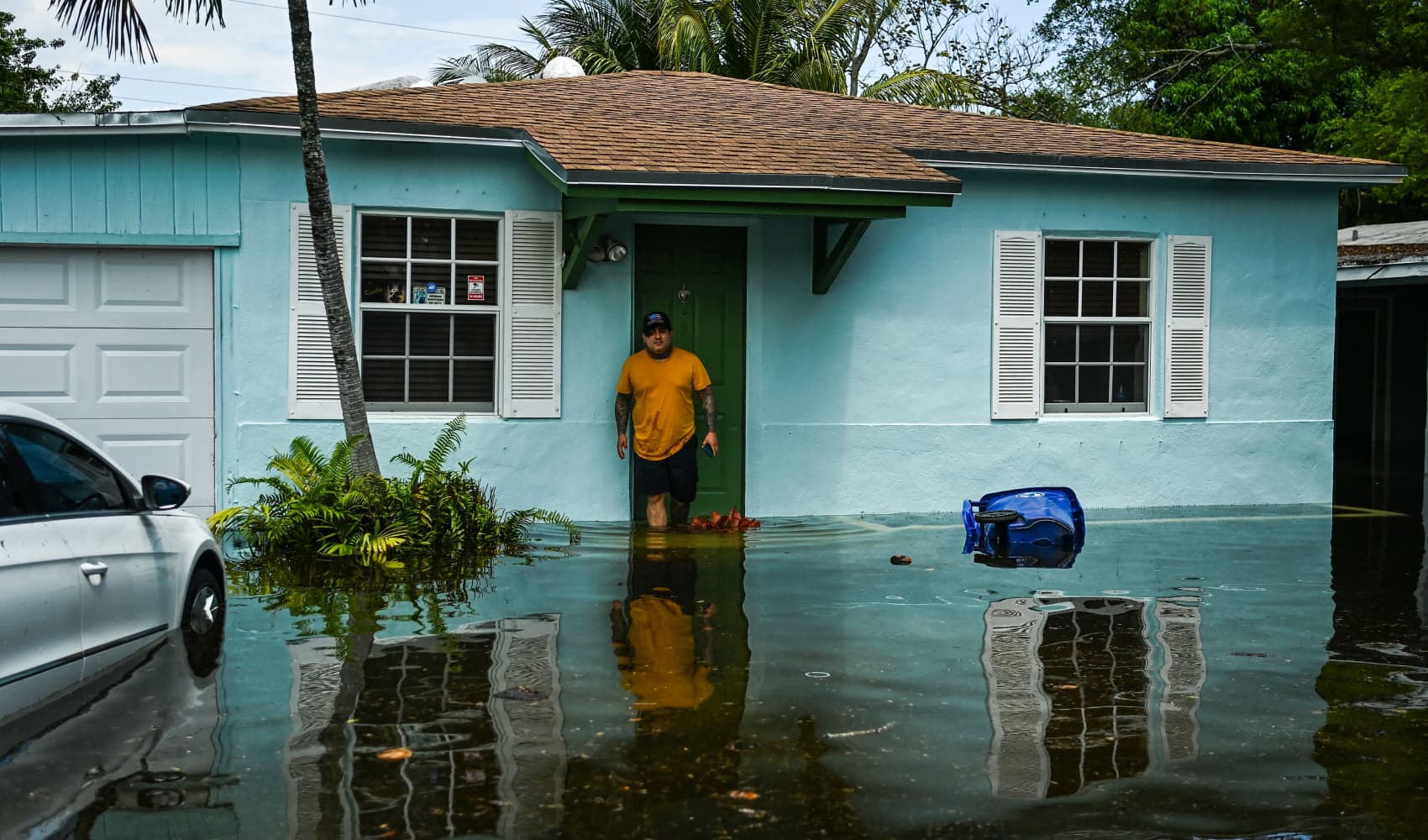
As a supplement, vitamin D has been a common staple on drugstore shelves for years — and its popularity is only growing.
In the U.S., its market value is projected to hit $1.3 billion by 2025. Studies show a large jump in vitamin D deficiency diagnoses over the past two decades, and the over-the-counter supplement claims to bolster your bone health, muscle function and immune system.
The supplement took on new life last year, when people started taking vitamin D pills as a preventative measure against Covid. Today, medical experts generally agree: Vitamin D doesn't prevent you from getting the virus. And while scientists are still trying to determine if it can lessen the severity of infections, due to its immune-bolstering benefits, it's certainly no replacement for getting vaccinated.
But Covid concerns aside, doctors have mixed opinions on the supplement. Some say that when taken in moderation, it's a harmless daily pill that can only help most Americans. Others argue that it's a largely pointless expenditure — and that in most cases, it's irresponsible to even test patients for vitamin D deficiencies.
Feeling out of the loop? We'll catch you up on the Chicago news you need to know. Sign up for the weekly Chicago Catch-Up newsletter here.
"It's a really tricky subject. There's really no consensus literature. There are no large-scale good studies on vitamin D without any conflicts of interest," Dr. Neha Vyas, a family medicine physician at the Cleveland Clinic, tells CNBC Make It. "You have to really be careful."
If you're feeling healthy, you probably don't need supplements
"You really don't need to screen people for vitamin D deficiency who are low-risk or asymptomatic," says Dr. Kendall Moseley, medical director of the Johns Hopkins Metabolic Bone & Osteoporosis Center. "One of the reasons that there's been an 'increased prevalence' in vitamin D deficiency over the last five to 10 years or so isn't really because we're all becoming vitamin D deficient. We're just looking more for it now."
Money Report
A landmark study published last month in the New England Journal of Medicine backs up Moseley's stance. Researchers studied 25,871 participants — men aged 50 and older and women 55 and older — and determined that vitamin D supplements had no tangible effect on the health of "generally healthy midlife and older adults."
If you're breaking bones during simple activities, experiencing bone pain to the touch or feeling enough muscle pain or weakness to keep you from being able to comfortably get out of chairs, you should consult your doctor about a potential vitamin D deficiency, Moseley says. Generalized fatigue and low mood may also be correlated with deficiencies, she adds — and you may be at particular risk if you have darker skin or if you spend your winters in places at high latitudes.
Moseley stresses that if you have any of these symptoms, it's unwise to self-medicate with over-the-counter supplements — because if you do have a severe deficiency, the specific dosage you'll need to take matters.
But Vyas says you shouldn't be surprised if your doctor looks past vitamin D as an immediate culprit: Many of the symptoms associated with vitamin D deficiencies are also often associated with other, more severe health conditions.
"As scientists, we have to be very careful about how we approach our patients," Vyas says. "We don't want to say, 'Oh, you're tired,' or, 'Oh, you're depressed, let me check your vitamin D levels,' because there are so many [potential] reasons for that."
The dangers of vitamin D toxicity
If your doctor doesn't think you're particularly at risk of a severe vitamin D deficiency, or thinks your symptoms don't merit screening, your path forward essentially comes down to risk versus reward.
Mild deficiencies are actually "quite common" because most people don't get nearly enough sunlight in their day-to-day lives to absorb a healthy amount of the vitamin, says Dr. Jad Sfeir, a Mayo Clinic endocrinologist. They go largely undetected, he says: Most people could live their entire lives with a mild deficiency and never know it.
Still, even mild deficiencies can bear eventual consequences. "Eventually, it puts you at risk of making your bones quite fragile and subject to fractures," Sfeir says. "It can go for years, completely unnoticed, until we detect osteoporosis by looking at a bone density scan — in women, usually after menopause, and in men, usually after the age of 60 or 70."
Sfeir says you can safely address the issue early by ingesting roughly 600 to 800 international units (IUs) of vitamin D per day. If you can get that entirely from your diet, you may never need supplements, he says — so consider tracking how much vitamin D you're getting from sources like fortified milk and orange juice, or fatty fish like salmon or mackerel.
Just be careful about adding over-the-counter supplements to the mix. Surpassing a total of 4,000 IUs per day puts you at risk of a dangerous level of toxicity, by overdosing the amount of calcium in your bloodstream and urine, Sfeir says. That can lead to symptoms like kidney stones, nausea, vomiting, cognitive changes, memory disturbances and even kidney failure, Moseley adds.
Currently, if you search for "vitamin D" on Amazon, you'll see a plethora of potentially dangerous high-dose options — from 2,000 IUs to 5,000 IUs per pill — before getting to anything below Sfeir's 600 IU figure. Moseley also notes that vitamin D may exist in other supplements you already take, from beauty supplements to energy pills.
In one high-profile example, published last month in the medical journal BMJ Case Reports, a British man was hospitalized for eight days — just a month after beginning a regimen of 150,000 IUs of vitamin D per day.
"It can take a year — or more, sometimes — for things to normalize. In really extreme cases, patients have to go on dialysis," Moseley says. "It's much harder to fix excess vitamin D than to fix low vitamin D."
Sign up now: Get smarter about your money and career with our weekly newsletter
Don't miss:
- The 4 vitamins and supplements this immunologist takes every day to strengthen her immune system: 'Your body will thank you'
- Doctors say these pandemic side effects are serious problems—and unlikely 'to go away anytime soon'






